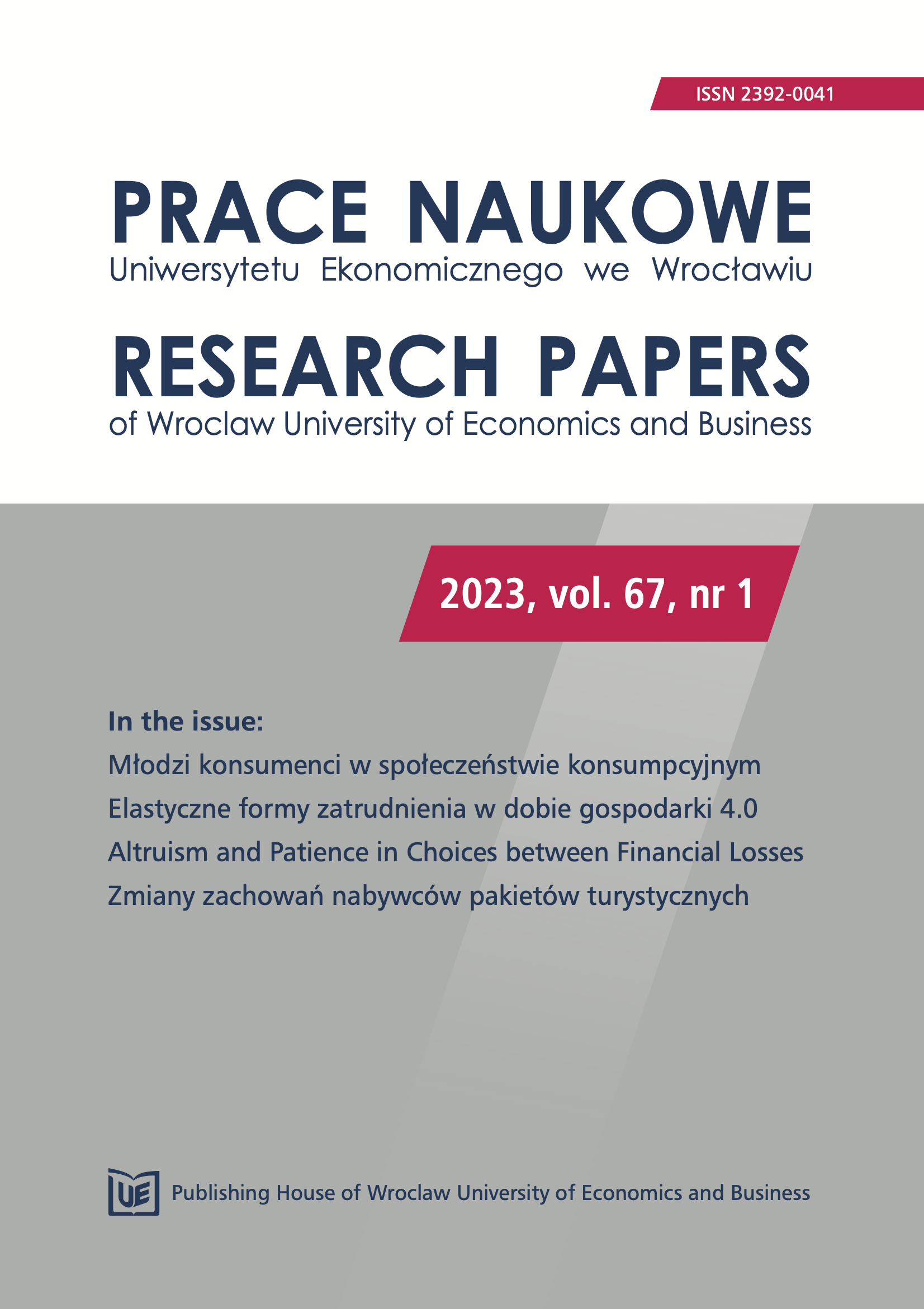Elastyczne formy zatrudnienia w dobie gospodarki 4.0
Flexible Forms of Employment in the Age of the Economy 4.0
Author(s): Joanna Kudełko, Dariusz ŻmijaSubject(s): Human Resources in Economy
Published by: Wydawnictwo Uniwersytetu Ekonomicznego we Wrocławiu
Keywords: Economy 4.0; flexible forms of employment; labour market
Summary/Abstract: Within the Economy 4.0, both the amount of work and the demand for different skills are changing, as well as the organisation of work and the ways in which workers are employed. The aim of this paper is to identify changes taking place in workplaces as a result of technological progress and to assess the extent to which new, flexible forms of employment are becoming more widespread in workplaces. The changes taking place in workplaces to the greatest extent include an increase in labour productivity, the possibility to undertake elastic forms of employment, an increase in the quality of work, the need for continuous professional development, and easier reconciliation of work and private life. In Poland, the most common form of flexible employment is remote working, while the occurrence of other modern forms of flexible employment, such as job rotation, work sharing or job sharing, is incidental.
Journal: Prace Naukowe Uniwersytetu Ekonomicznego we Wrocławiu
- Issue Year: 67/2023
- Issue No: 1
- Page Range: 94-105
- Page Count: 12
- Language: Polish

